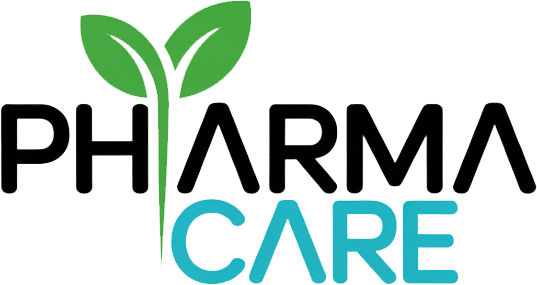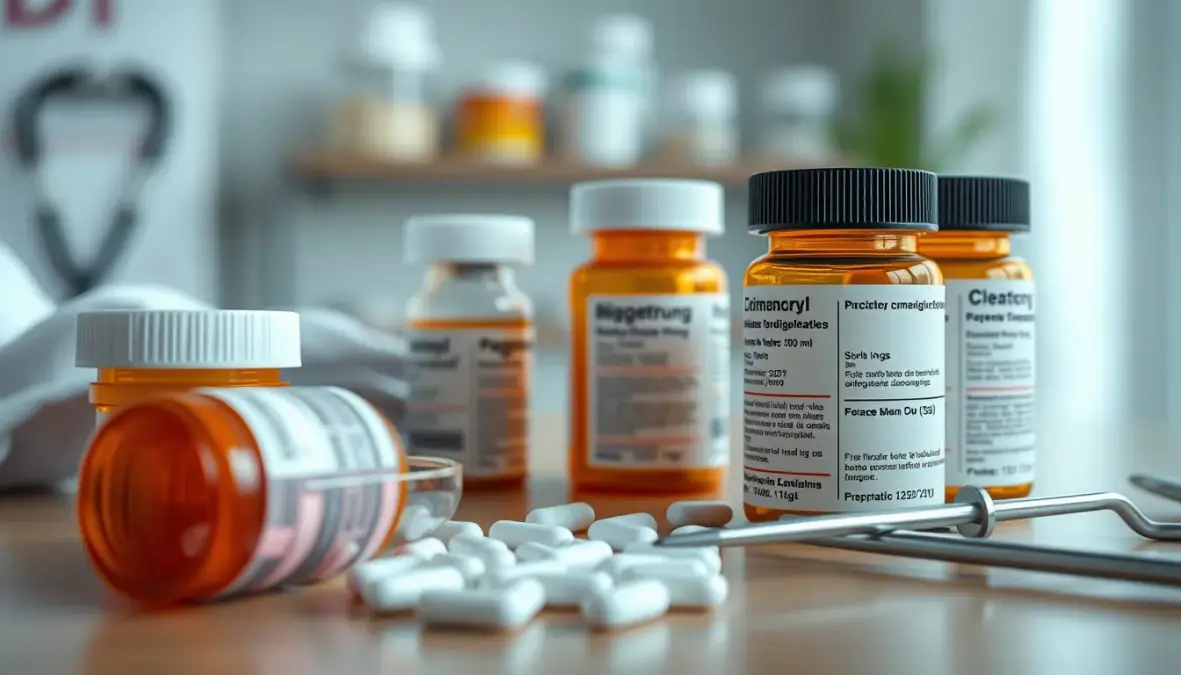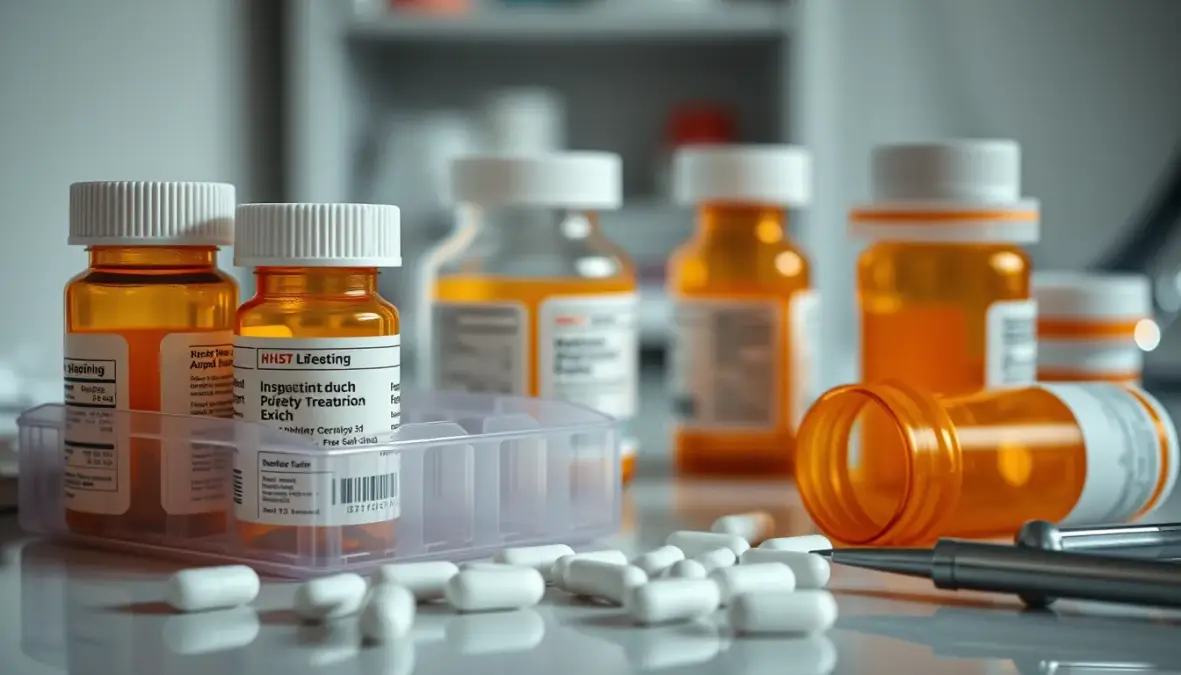Accurate and complete reporting of medications and medical conditions is one of the most important components of effective medical care. At Pharma Care, we believe that comprehensive information can help patients receive the best care. In this article, we will review the importance of correct reporting of medications before medical tests, how drug-test interactions may affect results, and what exactly is important to tell your doctor.
The importance of reporting medications in medical tests
Accurate reporting of the medications you take is critical to your health. Many medications can affect the results of lab tests, imaging tests, or other tests, leading to misdiagnoses or inappropriate treatments. It is important to understand that interactions with tests can also occur with over-the-counter medications, dietary supplements, and herbal remedies.
When you fully report all the medications you take, your doctor can:
- Interpret test results correctly
- Avoid dangerous drug interactions
- Tailor the treatment to your specific situation
- Identify possible side effects
- Provide precise instructions regarding taking medications before testing
What medications affect medical tests?
Almost any drug can affect certain tests, but there are groups of drugs whose effect is particularly significant:
| Drug group | Affected tests | Type of impact |
|---|---|---|
| Blood thinners (warfarin, aspirin) | Coagulation tests, blood count | May affect the results of clotting tests and increase the risk of bleeding |
| Diabetes medications | Sugar, liver and kidney function tests | Affect blood sugar levels |
| Blood pressure medications | Kidney function tests, electrolytes | May alter electrolyte levels and kidney function |
| Steroids | Hormonal tests, blood sugar | Affect hormone and sugar levels |
| Thyroid medications | Thyroid function tests | Changes thyroid hormone levels |
| Nonsteroidal anti-inflammatory drugs (NSAIDs) | Liver and kidney function, fecal occult blood tests | May cause false positive results in fecal blood tests |
Reporting medications before imaging tests
Imaging tests such as CT, MRI, ultrasound, and X-ray require accurate medication reporting, especially when contrast agents are used. Interactions with these tests may be significant in some cases:
Tests with contrast material
Iodine-containing contrast agents may affect kidney function. Certain medications in combination with contrast agents increase the risk of kidney damage:
- Metformin (diabetes medicine) – It should be discontinued before and after tests with contrast material.
- Diuretic drugs – May worsen dehydration and increase the risk of kidney damage
- Blood pressure medications from the group of ACE inhibitors or ARBs – May increase kidney sensitivity to injury
MRI tests
In MRI examinations, it is important to report:
- Pacemakers or implanted electronic devices
- Metal dentures
- Medications containing heavy metals
- Medical patches (such as nitroglycerin patches or hormone-releasing patches)
Effect of medications on laboratory tests
Interaction with laboratory tests is a common phenomenon that is important to be aware of. Here are some notable examples:
Blood tests
Many medications affect blood counts, lipid profiles, liver enzymes, and kidney function. It is especially important to report medications before testing these parameters.
Examples of specific effects:
- Statins – May increase liver enzyme levels
- Aspirin and anti-inflammatories – May affect clotting functions and cause mild anemia
- Blood pressure medications – Affect electrolyte levels and kidney function
- Hormones – Changes lipid profile and sugar levels
Urine tests
Urine tests are affected by many medications, including:
- antibiotics – May change the color of urine and affect culture results
- Vitamins – Vitamin B may change the color of urine to bright yellow.
- Painkillers – May affect tests for protein detection in urine
- Variables – Affect urine concentration and electrolyte levels
Guidelines for correct reporting of medications before medical tests
To ensure complete and accurate reporting of medications in tests, it is recommended to follow the following steps:
- Make a neat list – List all medications you take, including dosage and frequency.
- All inclusive – Don’t forget to mention over-the-counter medications, vitamins, nutritional supplements, and herbs.
- We updated the list. – Make sure the list is updated before each medical visit.
- Share information about allergies – Report any allergies to medications or medical substances
- Ask questions – Find out if there are any medications that should be stopped before the test and when to stop them.
What to include in the medication list?
Your medication list should include:
| Type of drug/preparation | Examples | Why is it important to report? |
|---|---|---|
| Prescription drugs | Medications for blood pressure, diabetes, cholesterol | Direct impact on test results and possible interactions |
| Over-the-counter medications | Painkillers, heartburn medications, antihistamines | May affect test results despite being over-the-counter |
| Dietary supplements | Vitamins, minerals, omega 3 | May affect blood tests and interfere with the action of other medications |
| Medicinal plants | Ginseng, Echinacea, St. John's Wort | Significant interactions with medications and tests |
| Hormones | Birth control pills, hormone replacement therapy | Effect on hormonal tests and metabolic indices |
| Inhalers and sprays | Asthma inhalers, nasal sprays | Impact on breath tests and hormone levels |
Special cases: medications that require special attention
There are medications that require special consideration before medical tests:
Blood thinning medications
Medications such as warfarin, Clexane, aspirin, Plavix, and Aliquis require specific instructions before invasive tests or surgeries. Sometimes they must be temporarily discontinued, but only on the advice of a doctor.
Diabetes medications
Before tests that require fasting, you should receive precise instructions regarding taking diabetes medications, especially insulin and medications that may cause hypoglycemia.
Thyroid medications
Medications such as Eltroxin may affect thyroid function tests. It is important to report them and find out if they should be taken before the test.
Medications before a test: Guidelines by type of test
Here are general guidelines for taking medications before common tests:
Routine blood tests
- You can usually continue to take most medications.
- For tests that require fasting, medications should be taken with only a small amount of water.
- For lipid profile tests, medications that affect lipids should be avoided 12 hours before the test (if the doctor has instructed you to do so)
Imaging tests
- CT with contrast agent – Metformin should be discontinued 48 hours before and after the test.
- MRI – Medication patches must be removed before the test.
- Abdominal ultrasound – Sometimes laxatives or anti-gas medications should be avoided.
Heart tests
- Stress test – Sometimes beta-blockers must be stopped 24-48 hours before the test (only under the guidance of a doctor)
- Echocardiogram – Usually there is no need to stop medication
- Heart Holter – You should continue taking medications as usual to check their effect.
Frequently Asked Questions
Should I report medications that I only take occasionally or as needed?
Yes, it is important to report all medications you are taking, even if they are taken as needed or irregularly. Medications such as painkillers, allergy medications, or sleeping pills can affect test results and cause interactions with various tests.
Do I need to report herbal remedies and dietary supplements before medical tests?
Absolutely. Herbs and supplements can significantly affect test results and interfere with the action of other medications. For example, ginkgo biloba and ginseng can affect blood clotting, and St. John's wort affects the breakdown of many medications in the liver.
When should I stop taking medication before a medical examination?
There is no single answer to this question, as guidelines vary depending on the type of test and medication. Never stop taking medication on your own. Always consult your doctor or referring physician for specific guidelines regarding the medications you are taking.
Is reporting medications in tests important even if they are routine tests?
Yes, reporting medications is important for any medical test, even routine ones. Medications can affect the results of basic blood tests such as blood counts, liver and kidney function, blood sugar levels, and blood lipids. Accurate reporting allows for correct interpretation of the results.
What about interaction with homeopathic medicine tests?
Although homeopathic remedies are generally considered to have minimal side effects, it is important to report them as well. In some cases, the ingredients in homeopathic remedies may affect test results or interfere with the action of other medications.
Medical Statement: The information in this article is for general information purposes only and is not a substitute for professional medical advice. Do not make any medical decisions or stop/start any medication without consulting a qualified physician. Always consult your physician regarding any medical questions or before making any changes to your medication regimen. Pharma Care is not responsible for any damage or injury that may result from reliance on the information in this article.

פרופ’ אלון גרין הוא מומחה לפסיכיאטריה קלינית ומחקר תרופתי, עם התמחות בפיתוח והתאמת תרופות מרשם למגוון מצבים נוירו-פסיכיאטריים. בעל ניסיון של למעלה מ־35 שנה בעבודה קלינית ואקדמית, וכיהן כמרצה ופרופסור אורח במספר אוניברסיטאות מובילות בארץ ובחו”ל. עמד בראש יחידות מחקר וטיפול בבתי חולים ציבוריים ומרכזים רפואיים מתקדמים. תחומי עיסוקו כוללים קשב וריכוז (ADHD), הפרעות חרדה והרגעה, דיכאון קליני והפרעות מצב רוח, וכן טיפולים תרופתיים תומכי דיאטה ואיזון מטבולי. משלב גישות מבוססות ראיות עם חדשנות פרמקולוגית, ופרסם עשרות מאמרים מקצועיים בכתבי עת מדעיים, תוך תרומה משמעותית להבנת מנגנוני פעולה של תרופות והשפעתן הקלינית.







